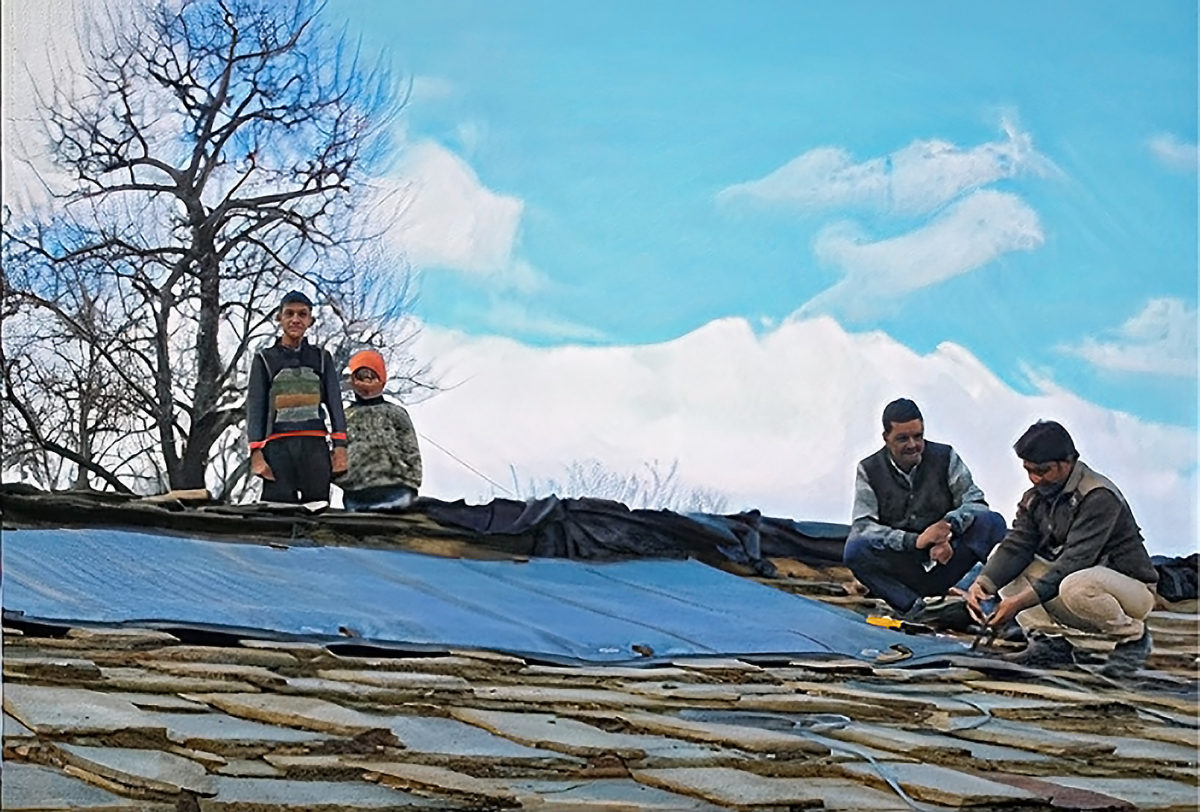Power Roll, a UK-based developer of flexible solar film, is installing an innovative PV mini-grid system to generate and store energy in rural villages of Mukteshwar in the Himalaya region.
In partnership with The Energy Resources Institute (TERI), the company is installing a modular system that comprises lightweight, portable solar PV to generate energy and an energy storage capability to enable energy use at night.
Applications include powering water pumps to support irrigation, lights to help students study at night, and power to run phones enabling access to national and international knowledge and support networks.
“This project will deliver clean, affordable power to three remote communities in India,” said Neil Spann, managing director at Power Roll. “The system is modular and can be adapted to suit individual environmental, economic and social circumstances within each village. It is also lightweight, which facilitates transport to remote locations.”
In the initial stage, Power Roll is using its partner BiPVCo’s light-weight and flexible solar modules within the system. These will provide valuable benchmark data to help evaluate Power Roll’s innovative solar film’s performance, which will be used in the next stage of the project.
Making PV flexible and light opens up opportunities to deploy solar on a wide range of non-load bearing buildings, including agricultural and warehouse roofs. However, existing flexible PV technologies on the market are expensive, costing up to five times more than silicon PV, i.e. around $1.00/Watt to manufacture.
Power Roll’s flexible film overcomes both the weight and cost challenges faced by silicon PV and today’s flexible PV technologies as it is ultra-light-weight and can be manufactured for just $0.03/Watt.
“Power Roll’s model is to seek manufacturing partners to license its intellectual property and manufacture locally, which aligns perfectly with India’s ‘Self-Reliant India’ industrial strategy,” said Ajay Shankar, Distinguished Fellow at The Energy and Resources Institute and former Secretary, Department of Industrial Policy and Promotion, Government of India.
The project is being funded through Innovate UK’s Energy Catalyst 7 to evaluate flexible PV film in powering rural, off-grid applications in developing regions.
Power Roll is trialing novel approaches to mounting the solar film using wire tensioning systems, which allow the solar film to be quickly and easily moved to where it is most needed.
The project is scheduled to run through to the end of 2021 and Power Roll will report on the outcomes in March 2022.
The solar film
Power Roll embosses micro-grooves smaller than a human hair into a flexible film and then uses a unique process to deposit electrodes on the groove walls’ sides selectively.
The grooves are arranged in series allowing flexibility in voltage configuration and can also be connected in parallel using a secondary patented groove feature.
Using standard printing techniques, each groove is filled with an active material which determines the end-use or application. For the Solar Film, any low-cost photo absorbing ink can be used. Power Roll is currently using Perovskites and has achieved a power conversion efficiency of 11% with a roadmap to achieve 15% and then 20%.
For capacitors, a dielectric material is printed into the grooves.
This content is protected by copyright and may not be reused. If you want to cooperate with us and would like to reuse some of our content, please contact: editors@pv-magazine.com.









By submitting this form you agree to pv magazine using your data for the purposes of publishing your comment.
Your personal data will only be disclosed or otherwise transmitted to third parties for the purposes of spam filtering or if this is necessary for technical maintenance of the website. Any other transfer to third parties will not take place unless this is justified on the basis of applicable data protection regulations or if pv magazine is legally obliged to do so.
You may revoke this consent at any time with effect for the future, in which case your personal data will be deleted immediately. Otherwise, your data will be deleted if pv magazine has processed your request or the purpose of data storage is fulfilled.
Further information on data privacy can be found in our Data Protection Policy.